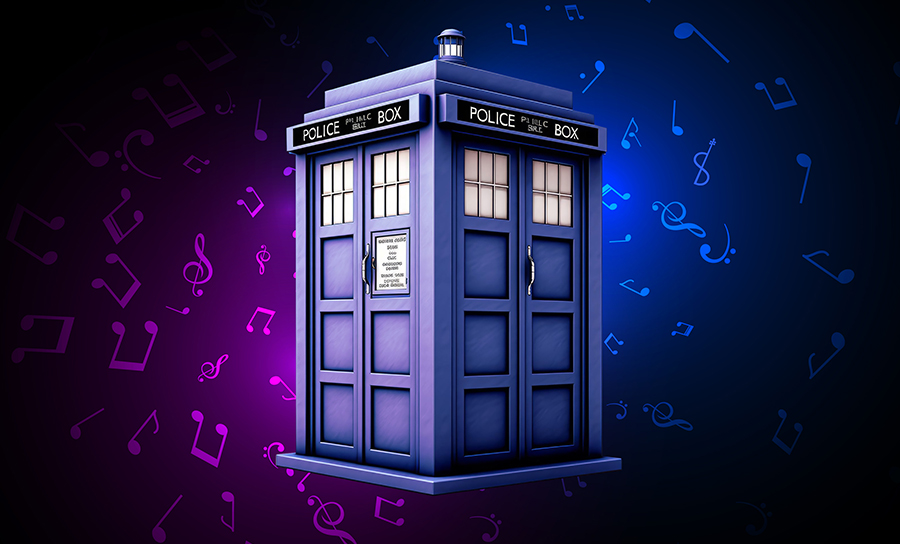The timeless sound of Doctor Who: The theme music's classical elements

The iconic British television series Doctor Who has captured the hearts of audiences for decades, not only for its captivating storytelling and imaginative characters but also for its remarkable theme music. Composed by Ron Grainer in 1963, the Doctor Who theme has become synonymous with the sci-fi phenomenon, evolving over the years while maintaining its timeless allure.
A pioneering composition
Grainer's original composition, realised by the innovative Delia Derbyshire at the BBC Radiophonic Workshop, marked a groundbreaking moment in electronic music. By manipulating tape recordings and experimenting with electronic sounds, Derbyshire crafted a piece that perfectly captured the otherworldly essence of the Doctor's adventures through time and space. The result was a revolutionary theme that laid the foundation for future iterations.
Evolution through regenerations
As the Doctor regenerated on-screen, so did the theme music. From the original version's electronic mystique to Peter Howell's synth-infused arrangement in the '80s and the orchestral grandeur of the 2005 revival by Murray Gold, each rendition brought a fresh perspective while preserving the core essence of the Doctor's journey.
Murray Gold's orchestral brilliance
Gold's contribution to the Doctor Who soundtrack elevated the series to new heights. His use of a full orchestra added emotional depth and cinematic quality to the music, enhancing the show's dramatic moments and contributing to its overall immersive experience. The blend of classical orchestration with electronic elements created a sonic landscape as vast and diverse as the Doctor's adventures themselves.
Doctor Who at the BBC Proms
In a nod to the theme's classical score, the Royal Albert Hall became a temporal nexus in July 2013, hosting the first of two Doctor Who Proms during the opening weekend of the year's BBC Proms classical music season. The TARDIS materialized within the grandeur of the historic venue, echoing not only with the orchestral renditions of the beloved theme but also with the jubilant cheers of devoted Whovians. Amidst the splendor of live performances by the BBC National Orchestra of Wales under the baton of conductor Ben Foster, the Proms became a harmonious celebration of the 50th Anniversary of Doctor Who. Remarkably, the event unfolded without major incident, even in the presence of Daleks, Cybermen, and other formidable adversaries from the Doctor's vast universe. This extraordinary musical soirée marked a fitting tribute to the time-traveling hero, solidifying the theme's place in classical and cultural history.
Significance of the theme
The Doctor Who theme has become a cultural phenomenon, transcending the boundaries of the television screen. Its recognition factor is unparalleled, instantly transporting fans to the heart of the TARDIS and the ever-changing universe of the Doctor. Whether it's the haunting echoes of the original or the symphonic crescendos of the modern arrangements, the theme encapsulates the spirit of the show and its enduring legacy.
In the realm of television theme music, Doctor Who stands as a shining example of how a composition can become as iconic as the series it represents. From its experimental origins to the symphonic brilliance of recent years, the theme has seamlessly evolved while retaining the enchanting quality that has captivated audiences for generations. As the Doctor continues to regenerate, so too will the timeless allure of the Doctor Who theme music persist, echoing through time and space.
